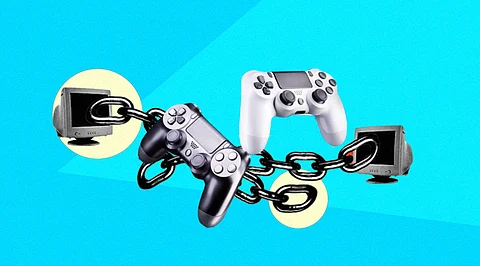
- Insights
- Cryptocurrencies
- Stocks
- White Papers
- Industry
- Geography
- Insights
- Cryptocurrencies
- Stocks
- White Papers
- Industry
- Geography


The emergence of blockchain technology has given rise to a unique fusion of gaming and decentralized systems, known as blockchain gaming. While this innovative approach holds the promise of transforming the gaming landscape, it also introduces a set of distinct risks that both gamers and developers should be aware of. From the volatility of cryptocurrency values and security vulnerabilities to the complexities of scalability and regulation, the world of blockchain gaming is not without its challenges.
This article explores the top risks in blockchain gaming, shedding light on the potential pitfalls and highlighting the need for a cautious and informed approach to this exciting intersection of technology and entertainment.
Blockchain-based platforms bring innovation to the gaming industry but may also carry some risks that could discourage players from using them.
Blockchain gaming often involves the use of cryptocurrencies as in-game assets or currencies. However, the value of cryptocurrencies can be highly volatile, leading to unpredictable fluctuations in the worth of virtual assets. Gamers investing time and resources into these assets could potentially experience sudden losses due to market instability.
Blockchain gaming relies heavily on decentralized networks and smart contracts to manage transactions and asset ownership. However, these systems can be vulnerable to security breaches and hacking attempts. If a smart contract is exploited, gamers might lose their valuable in-game items or tokens, leading to financial losses and privacy concerns.
The blockchain gaming space is relatively new and lacks regulatory frameworks. This absence of oversight can result in fraudulent projects, scams, and unethical practices. Gamers might find themselves dealing with fraudulent initial coin offerings (ICOs) or developers who promise more than they deliver.
Blockchain networks like Ethereum, which are commonly used in blockchain gaming, can face scalability and speed issues. The limitations of these networks can lead to slow transactions, high fees, and reduced gaming experiences, especially during peak usage times.
For gamers new to blockchain technology, navigating the intricacies of blockchain gaming platforms, wallets, and transactions can be daunting. Understanding concepts like private keys, wallets, and gas fees can present a steep learning curve that might discourage newcomers from fully engaging in blockchain gaming.
